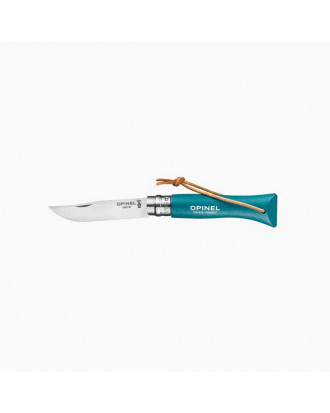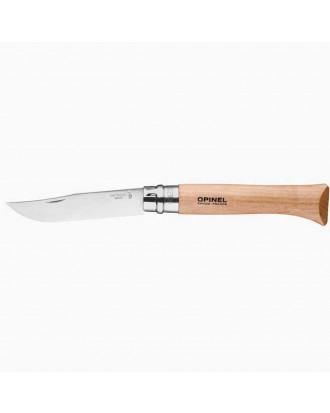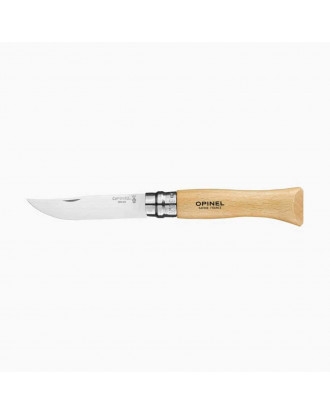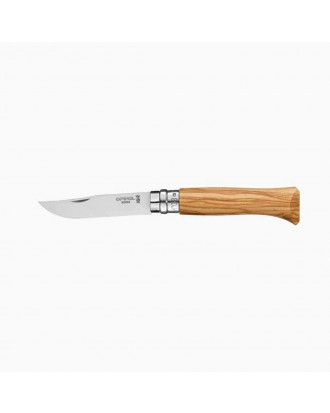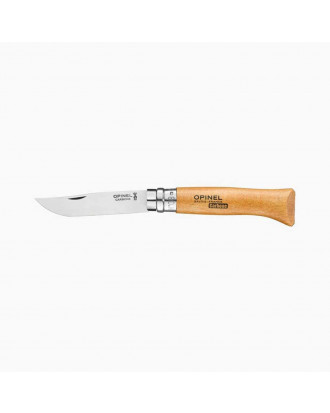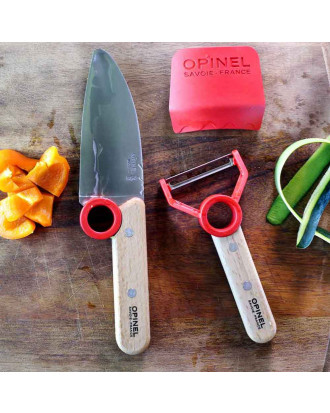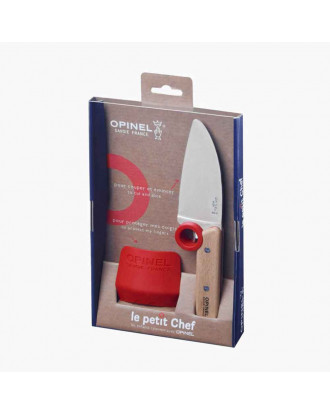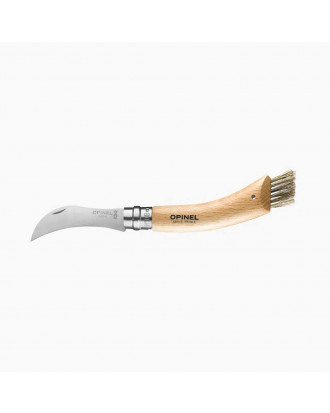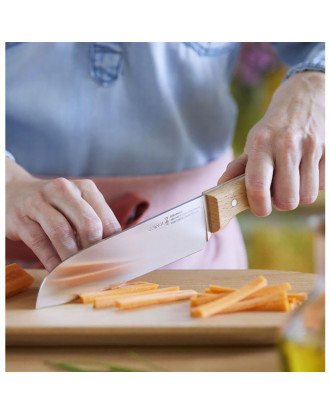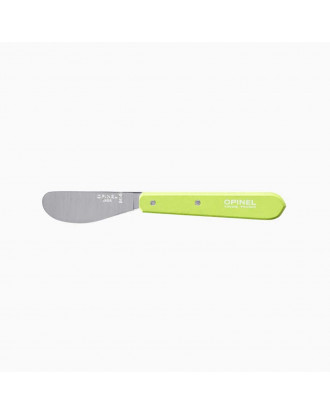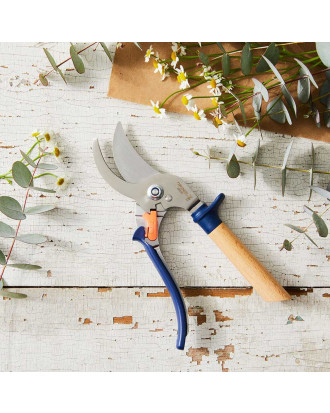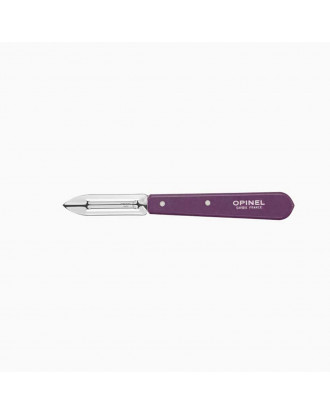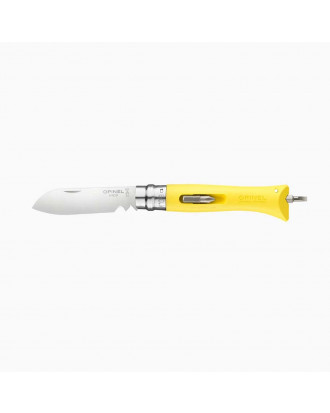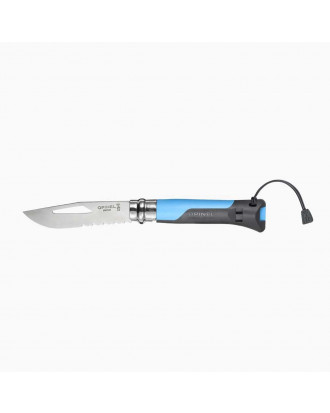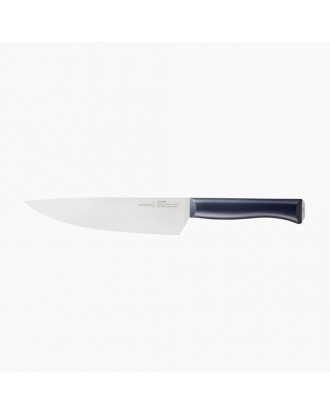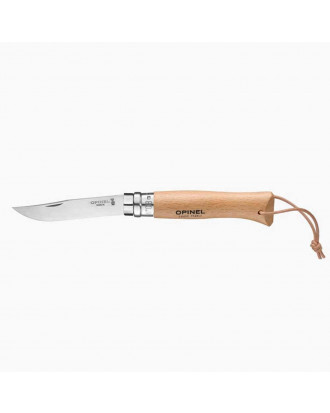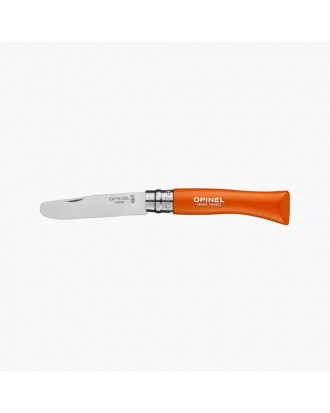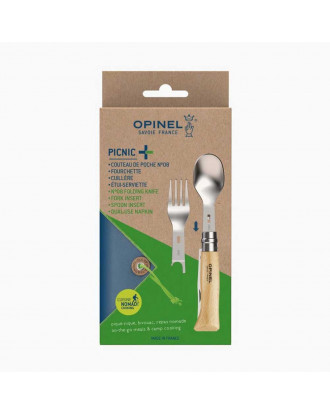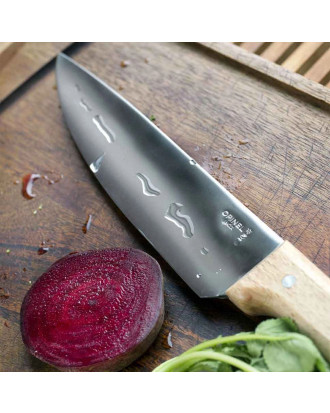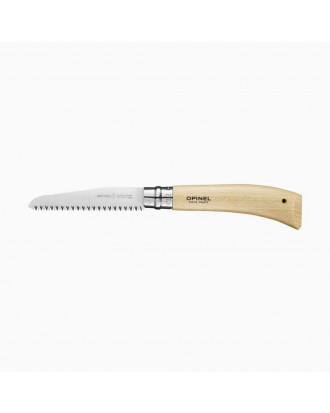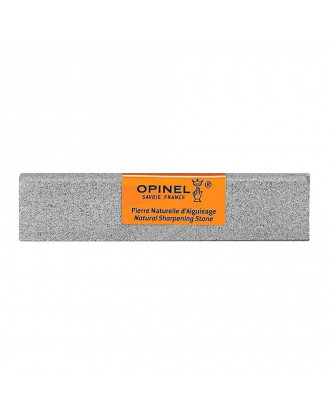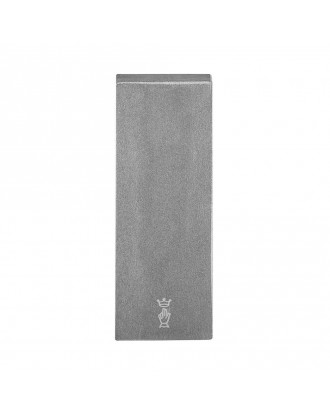We use cookies to make your experience better. To comply with the new e-Privacy directive, we need to ask for your consent to set the cookies. Learn more.
Opinel

- Pocket knife Opinel Tradition ColoramaPrice €10.84 Regular Price €13.55
- Pocket knife Opinel Stainless SteelPrice €10.62 Regular Price €11.80
- Pocket knife Opinel Olive Stainless steelPrice €16.16 Regular Price €17.95
- Le Petit Chef Opinel set: knife, peeler and finger guardPrice €36.00 Regular Price €40.00
- Out of stock
- Out of stock
- Spreader knife Opinel Spreader N°117Price €7.65 Regular Price €8.50
- DIY – Do it yourself! Opinel pocket knifePrice €20.83 Regular Price €24.50
- Out of stock
- Out of stock
- Out of stock
Pocket knives Opinel
Opinel pocket knives are popular French knives that are widely used for outdoor activities such as camping, hiking, fishing or for everyday household use. Opinel knives are known for their simplicity and functionality and elegant, classic design.
Opinel knives are made of high-quality steel, which ensures long-lasting sharpness of the knife and resistance to corrosion. The blade of the knife is easily opened and closed with the help of a characteristic buckle located on the handle of the knife. The handle is made of beech wood, which ensures a comfortable and secure grip.
Opinel knives come in a variety of sizes, from small knives that easily fit in your pocket to larger knives that are suitable for camping and other outdoor activities. Some models have additional features such as a serrated blade for easier cutting of fibrous materials or a bottle opener.
Opinel knives are practical and reliable knives that are popular with nature lovers, as well as with anyone looking for a quality knife for everyday use.
Opinel knives - simple, robust, reliable
The story of Opinel dates back to the year 1800. Victor-Amédée Opinel was a peddler. While traveling the country, he learned to forge nails. So he opened a blacksmith shop in Gevoudaz, a hamlet in Albiez-le-Vieux, near Saint-Jean-de-Maurienne. His son Daniel later worked alongside him and later took over the workshop. Daniel became an extremely well-known forge maker. Farmers from near and far held him in high esteem, and bought sickles, scythes, and similar wrought products from him.
In 1872, Joseph Opinel, the eldest son of Daniel Opinel, was born. When he turned 18 in 1890, he was already working in the family workshop. Joseph had an extraordinary passion for innovation, new technologies. At first, he made his own camera and became a local photographer to weddings and events. He spent his time perfecting the design and making a small pocket knife: Opinel was born!
Joseph Opinel had the idea to make his knife in different sizes to suit different hand sizes or different tasks. So in 1897 he developed 12 different sizes, numbered from 1 to 12. The smallest knife, called no. 1, included a ring so that it could be attached to a pocket watch chain. Its production, as well as the production of No. 11, was discontinued in 1935. but the other sizes remained.
Today, the smallest Opinel No. 2 is with a blade length of 3.5 cm. The largest knife is No. 13, with a blade length of 22 cm.
Demand grew and father's forge was soon too small. So in 1901 he built his first factory. It was a very modern factory for those times. He was the first in the village to get electricity!
By 1915, some important steps had taken place. For example, Opinel got its logo, as it is today. But in 1915, during the war, Joseph realized that he would not be able to expand his business if he remained in his village of Gevoudaz. So he did a little research and decided to move to Chambéry. Mainly because of logistics, since there was a railway and the road network was much more developed. So they moved the production. They used mules and oxen to move to Saint-Jean-de-Maurienne, and from there by train. In 1917, the great commercial development of Opinel began.
Already in 1926, a great accident befell them. The factory was completely burnt down. The furnace for heating the workshops, which operated on the waste chips generated in the production, caused a large fire. But the Opinel family did not give up. They built a new modern factory on the same site.
The factory operated until 2014. Then it was moved just a few kilometers away, where more space was available. The Opinel buildings at 508 boulevard Henry Bordeaux in Chambéry now cover an area of 5,000 m².
Did you know?
The Opinel knife is a popular everyday item that has conquered generations of users with its aesthetics and functionality. It has remained unchanged for more than a century! With a design that is one of the most successful of all time. As a result, the Opinel was recognized in 1985 by the Victoria and Albert Museum as one of the 100 best-designed objects in the world, alongside the Porsche 911 and the Rolex watch.
In 2006, in the wonderful three-part collection "Phaidon Design Classics", a jury of international designers recognized the Opinel pocket knife as one of the 999 most successful models of all time.
In 2010, during the celebration of the 150th anniversary of the incorporation of the Savoie region into France, Opinel published the cookbook “La cuisine à l'Opinel” (Cooking with Opinel). This is a true journey into the Opinel region with portraits and recipes of 25 Michelin-starred chefs from the provinces of Savoie, Haute-Savoie, Piedmont and the Nice region, including interesting anecdotes about the history of Savoy gastronomy, written by Annie Victor and illustrated with photographs by Anthony Cottarel. The book won first prize at the Gourmand World Cookbook Awards 2009 in the category of Best Corporate Book in France.
How to sharpen a knife
Opinel blades are known for their exceptional cutting power. To protect this cutting quality, it is important to regularly sharpen the blade when it is dull. And to prevent premature damage to the blade.
Cutting food with your OPINEL knife
In order to preserve and protect the quality of your blade, cutting on hard surfaces (glass, marble, ceramics, etc.) is not recommended. Use softer surfaces for cutting, such as a wooden or plastic cutting board.
What to do in case of oxidation stains (rust / corrosion) on carbon blades?
Wipe the blade with the back of a dishwashing sponge, then wash the blade with a damp, warm sponge and detergent. Wipe the blade with a dry and soft kitchen cloth. Finally, grease the blade with cooking oil. We recommend that you store the Opinel knife in a dry environment with the blade closed.
